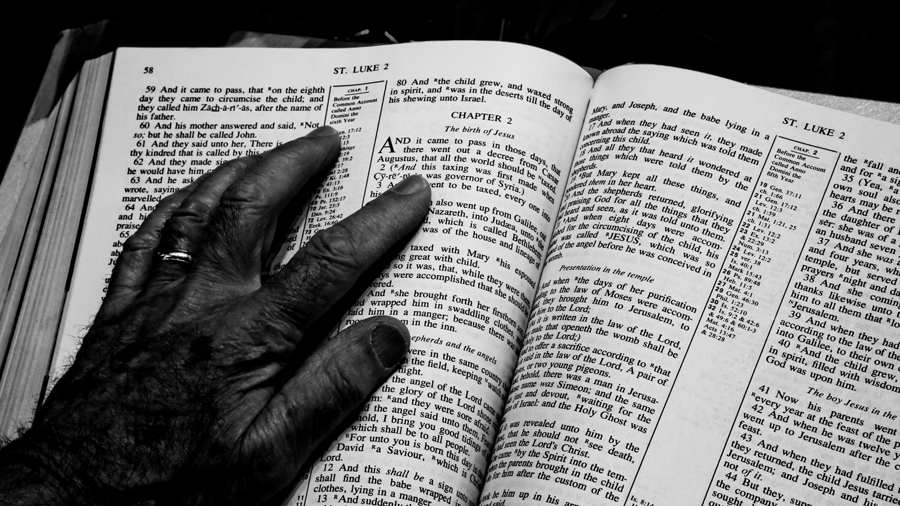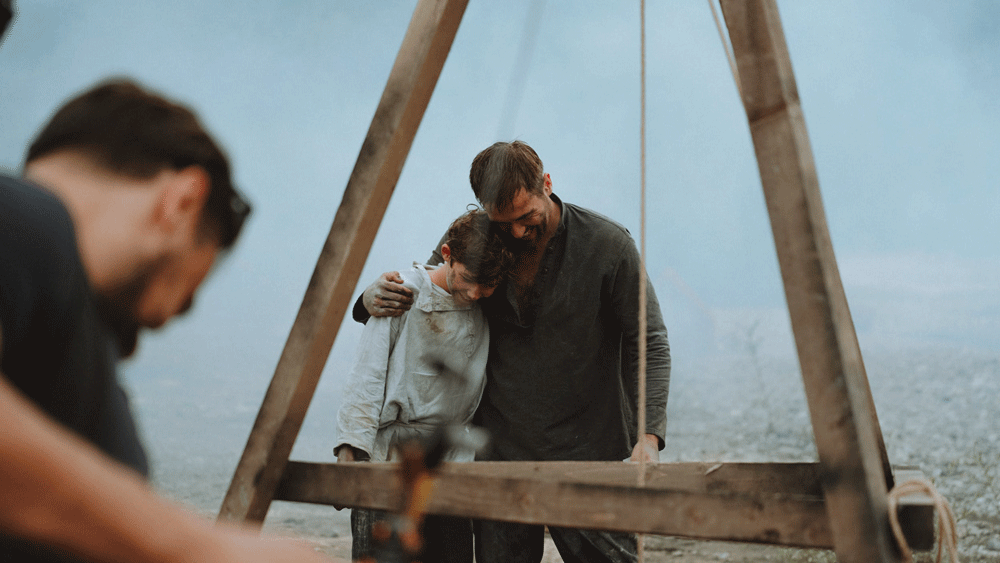
When I was 12 years old, I was asked by my church’s pastor to give a talk in front of the whole church. He recommended I dress as a biblical figure and act out the story. A few weeks later, I stood before the congregation dressed in brightly-coloured robes, sandals and a headscarf and enacted the story of the prodigal son. I invited my uncle, who was not a believer, to come hear my story. To my astonishment, on the day, he was there in the audience. As I reached the climax of the story, I noticed tears running down my uncle’s face. It was a profound moment that set my life on a new course. I didn’t fully understand what I had done that day, but whatever it was, I knew I wanted to keep doing it.
Have you ever had to forgive someone who wronged you? The themes of forgiveness and reconciliation transcend cultural boundaries and are often found in stories about siblings. From Romulus and Remus to Thor and Loki, many of the world’s oldest stories focus on siblings—many ending in tragedy. Today, we are going to delve into two such narratives—except these have happy endings. One was told by a first-century Jewish rabbi and the other is a foundational story of an ancient religious text. I am, of course, referring to the aforementioned parable of the prodigal son as well as the story of Jacob and Esau. These timeless tales offer profound lessons about love and the transformative power of forgiveness. Let’s journey through these narratives together.
The prodigal
Our journey begins with the parable of the prodigal son, told by Jesus of Nazareth in the Gospel of Luke. This story tells the tale of a wayward son who demanded his inheritance from his father (while his father was still alive), wasted it recklessly and subsequently found himself in emotional and material ruin. Luke captures the essence of the son’s rebellion: “The younger one said to his father, ‘Give me my share of the estate.’ So he divided his property between them. Not long after that, the younger son got together all he had, set off for a distant country, and there squandered his wealth in wild living” (Luke 15:12,13). As the young man hits rock bottom, he comes to his senses. The son realises the consequences of his actions and decides to return to his father to penitently admit his mistakes. This decision is a turning point in his life.
The narrative paints a profound picture of the son’s return. “But while he was still a long way off, his father saw him and was filled with compassion for him; he ran to his son, threw his arms around him, and kissed him” (Luke 15:20). This parable beautifully captures a parent’s joy when a child returns home. According to Jesus, this is the way God the Father feels when a lost son or daughter puts their trust in Jesus. What a happy reunion! Theologian Henri Nouwen, in his book The Return of the Prodigal Son, summarises Jesus’ parable perfectly: “The story of the Prodigal Son is the story of a God who goes searching for us, runs toward us, and welcomes us back with open arms, regardless of our past.

As I read about the prodigal son’s return, I couldn’t help but think about the character we often miss—the older brother who stayed home. He had faithfully continued serving on the family farm while his reckless brother was off squandering his share of the inheritance. You can understand how resentful he was when his father welcomed his brother home, no questions asked. He was jealous when his father was generous. He was selfish when his father was celebrating. This bitter brother reminds us to join the Father in celebration, generosity and grace when a lost child comes home. As the father in the story reminds his eldest son, “We had to celebrate and be glad, because this brother of yours was dead and is alive again; he was lost and is found” (Luke 15:32).
Stealing from your brother
Now, let’s turn to the narrative of Jacob and Esau in the first book of the Bible, Genesis. This story portrays a tale of deception, sibling rivalry, estrangement and ultimately, reconciliation.
In ancient near-eastern cultures, typically the eldest son of a family could expect to inherit the lion’s share of his father’s wealth. In this story, Jacob, the younger brother, deceived his blind father Isaac into blessing him with his inheritance rather than allowing it to go to his older brother, Esau. The depth of Jacob’s deception was revealed when Isaac said to Esau, “Your brother came deceitfully and took your blessing” (Genesis 27:35). This act sowed deep discord between the brothers.
Esau, understandably hurt and betrayed, “held a grudge against Jacob because of the blessing his father had given him. He said to himself, ‘The days of mourning for my father are near; then I will kill my brother Jacob’” (Genesis 27:41). In modern English, “Once dad is dead, so are you!” Fearing for his life, Jacob fled to his uncle Laban’s house, where he lived in exile for many years. The relationship between the brothers remained deeply broken.
Twenty long years after Jacob’s betrayal, in a moment of divine grace and transformation, the two brothers reconciled and Esau forgave him. Genesis 33:4 beautifully captures this moment, “Esau ran to meet Jacob and embraced him; he threw his arms around his neck and kissed him. And they wept.” Of course, there are many more details. If you want to discover the entire tale, check it out in Genesis for yourself.

Beyond the story
Both stories emphasise the importance of recognising our mistakes and seeking reconciliation with those we have wronged. They also speak to the nature of God’s character. Just as the father in the prodigal son parable embraced his wayward son, God’s love is unconditional and His mercy knows no boundaries. These stories remind us that no matter our capacity for mistakes, God’s capacity for forgiveness exceeds it. The Chronicles of Narnia author CS Lewis once said, “To be a Christian means to forgive the inexcusable because God has forgiven the inexcusable in you.” Forgive as you have been forgiven.
When he realised the heart of Esau was filled with forgiveness, Jacob declared, “To see your face is like seeing the face of God” (Genesis 33:10). This profound statement underscores the idea that reconciliation and forgiveness are inherent to God’s character. When we extend forgiveness and experience reconciliation, we catch a glimpse of God. In such moments, we experience Divine love and mercy.
I encourage you to carry these lessons with you. Whether you find yourself in the role of the prodigal son in need of repentance or like Esau needing to extend forgiveness, may you choose God’s way of love.
May you, like the brother who chose forgiveness over resentment, be ready to forgive.
May you recognise the face of God when you receive forgiveness from others.
And, may you experience heaven’s profound joy every time the Father calls for a celebration!
Dave Edgren is a storyteller and writer. He lives in Victoria, Australia.






